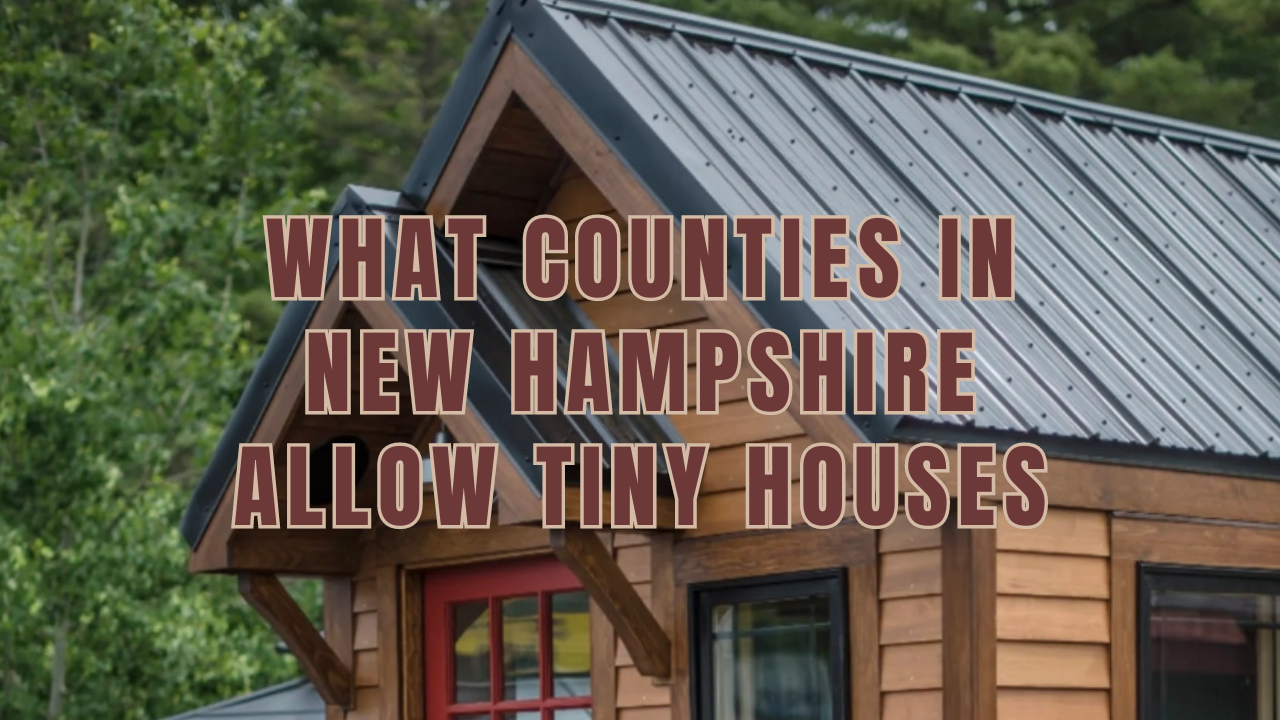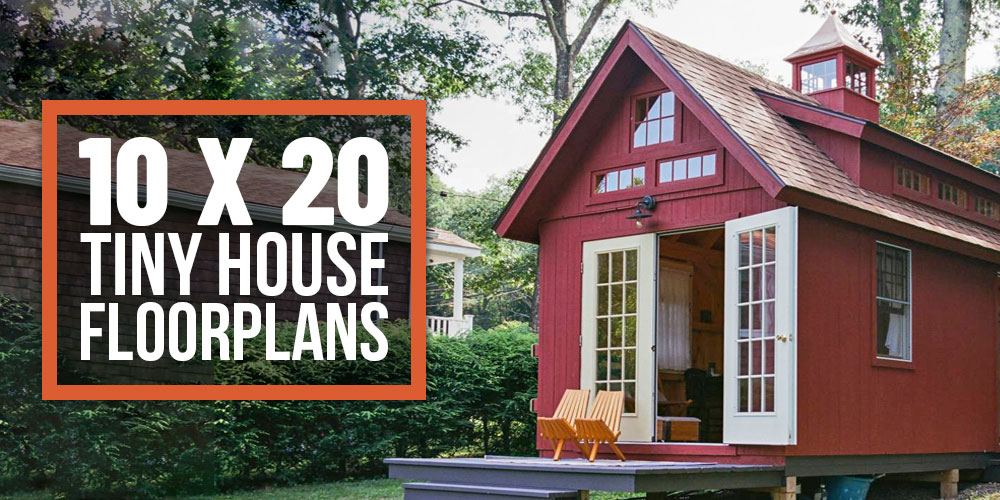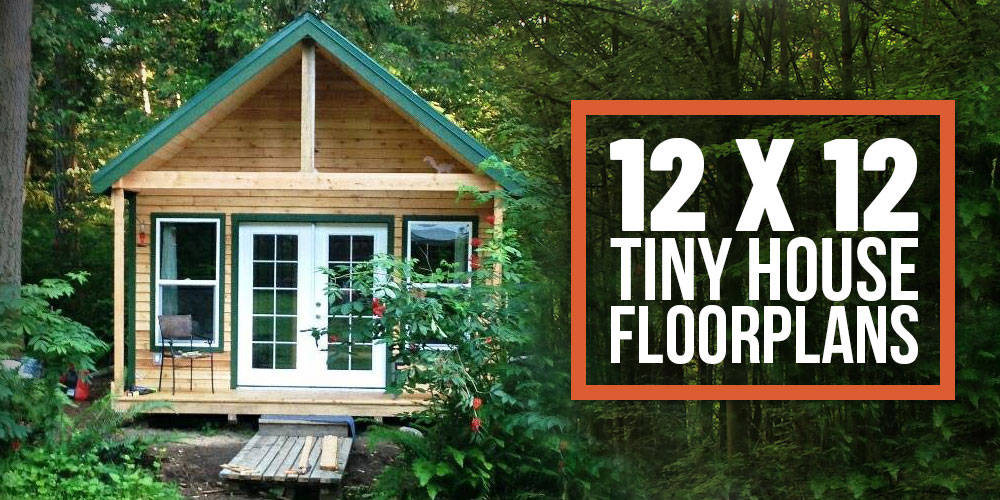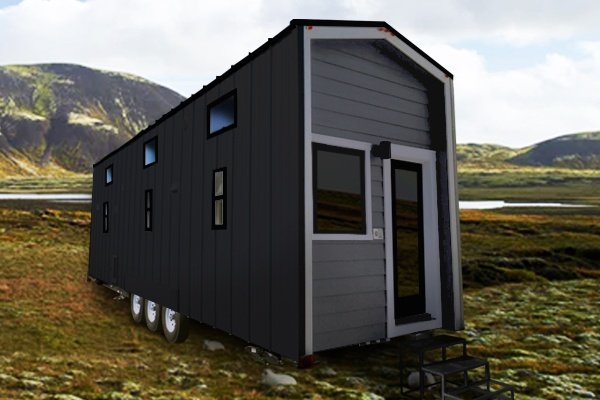
Are you considering building or buying a tiny house in New Hampshire? Follow the rules and regulations surrounding tiny homes in different counties. While tiny homes are legal in New Hampshire, each county has specific requirements and zoning laws. Before embarking on your tiny house journey, research the certification for tiny homes in the specific county where you plan to reside. Understanding the rules and regulations will help ensure a smooth and legal process as you pursue your tiny house dreams in NH.
Tiny House Prices in New Hampshire
After embarking on your tiny house venture, you are probably curious about affordable solutions that match your aspirations for a tiny home.
We provide options to suit every living style and price range to guide you in taking the next step toward your living project. Explore New Hampshire tiny home listings.
What counties in New Hampshire Allow Tiny Houses?
Each county in New Hampshire has different laws and attitudes toward small homes. While some counties encourage compact living and are welcoming to tiny homes, others might not be as understanding.
Sullivan County and Carroll County
Because they do not have their zoning laws, small dwellings are permitted in New Hampshire’s Sullivan and Carroll counties. The absence of laws makes it easy to live in a tiny residence in these counties. Furthermore, a few particular New Hampshire cities—Concord and Manchester, for example—welcome tiny house owners by classifying them as accessory housing units.
Tiny House Regulations And Rules In New Hampshire
In New Hampshire, laws and regulations regarding tiny houses are still evolving. Currently, there are no specific statewide regulations for tiny houses, but local zoning ordinances and building codes apply. Some areas may require minimum square footage for residential buildings, which could affect tiny house construction. Research the specific regulations and rules in the desired location before pursuing a tiny house project in New Hampshire.
Permanent Structure Rules
House Bill 588 and the 2015 IRC Appendix Q for small houses provide guidelines and restrictions for tiny dwellings in New Hampshire to have permanent construction. These rules guarantee permanent small home construction compliance and safety. Furthermore, counties without zoning ordinances make it simpler to build houses because starting to live in one involves less bother and a reduced chance of breaking the law.
According to the 2015 IRC Appendix Q, here are some rules to follow:
- A tiny house has to have an egress roof access window that satisfies Section R310.2’s standards for rescue operations and is built and installed for emergency escape.
- In a tiny house, the ceiling height in livable areas and passageways must be at least 6 feet 8 inches.
- For a tiny house, the ceiling height of the kitchen, bathroom, and toilet room must be at least 6 feet 4 inches.
- Obstacles must not rise higher than the specified minimum ceiling height. These impediments have lighting fixtures, girders, and beams, among others.
- A small dwelling has to include emergency escape and rescue apertures that comply with Section R310.
According to House Bill 588, here are the rules to consider:
- A little house must provide sleeping, cooking, dining, and bathroom amenities.
- Tiny dwellings will be subject to the state and local construction rules for single-family homes. Zoning, fire, safety, electrical attachments, emergency vehicle access, plumbing, and, if necessary, public or private sewer systems are all included in this.
- Any municipality that has a zoning rule under the power conferred in this chapter is required to by law permit tiny houses in all zoning districts that permit single-family homes. In all other districts, small dwellings may be allowed at its discretion.
- A municipality shall permit the use of a single tiny home as a detached auxiliary housing unit following RSA 674:73.
- Municipalities may demand if require more lot acreage for detached housing units. If such requirements are in place, the small home could adhere to the requirements zoning municipality’s detached accessory dwelling unit dimensions.
- A tiny home or an auxiliary housing unit may be on a property, but not both.
- When a small home is for residential purposes, the Environmental Services Department authorizes it to be linked to a public or private water and sewer system or a subsurface wastewater disposal system.
- Additionally, self-contained sanitary and drinking water systems, and a self-contained wastewater system that doesn’t release any liquid or trash, are available to tiny homes.
Temporary Structure Rules
Special laws govern tiny residences on wheels classified as recreational vehicles. For example, those who intend to live in a tiny home on wheels (THOW) go by RV camping regulations, which usually stipulate a two-week maximum stay in one area before relocating. Furthermore, small houses on wheels need a permit from the municipal authority to park on public property.
- There must be sleeping, cooking, dining, and bathroom facilities in a tiny house on wheels.
- A tiny home on wheels needs a chassis licensed, registered, and inspected. Register the chassis with the municipal and state governments.
- A third-party inspection firm certified to certify tiny homes or recreational vehicles must seal a tiny house on wheels. This mark will prove that the mobile home has completed all inspections for conformity with building codes related to energy efficiency, safety, and structure at every stage of development.
- The small house has the seal obtained from the independent inspection business permanently attached to it. An engineer from the area will verify that the small home and chassis are connected.
Transitional Structure Rules
New Hampshire’s homeless population may now live comfortably in small houses. While the state has some transitional community projects. Currently, there are no regulations governing transitional tiny house constructions.
In New Hampshire Where Can I Build A Tiny House?
Pick a certified small house builder to guarantee your home conforms with construction codes, manage all the documents, and provide guidance throughout the process.
Building a tiny home is an enormous task, but if you prepare it properly doesn’t have to be unpleasant. Here are some places where tiny dwellings are found:
- RV parks
- National Parks and campgrounds
- Tiny house communities
- Private properties
Tiny House Communities in New Hampshire
Intimate social connections make life easier in a tiny house community where members work together to improve lives and spread knowledge.
Nubanusit Neighborhood & Farm
There are 29 homes and a thriving farm in the Nubanusit Neighborhood & Farm. This intentional community strives to uphold the values of farming, community, sustainability, enjoyment, and light-footed living.
The age range of its cohousing members is from infancy to over 85 years old. Many commutes nationally and inside New Hampshire, work from home, and enjoy retirement. The community’s kids attend private and public schools.
Tuxbury Tiny House Village
The village’s tiny homes are between 180 and 275 square feet, and each one’s attributes are detailed online. During your stay at Tuxbury Tiny House Village, you may unwind on the serene beaches of Tuxbury Pond, sit by the pool, or explore the nearby farms, restaurants, apple orchards, vineyards, and wineries.
The community is thirty minutes from museums, outlet stores, and Salisbury Beach in Massachusetts.
Tiny House Builders Near Me
To pick your ideal home, you won’t need to search for local builders because Great Lakes Tiny Homes provides an extensive selection of tiny house designs with national delivery.
Moreover, RV Industry Association (RVIA)-certified builder Great Lakes Tiny Homes is enthusiastic about adhering to the strictest construction, safety, and regulatory requirements for tiny homes and the best production standards.
Do I Need a Certified Builder?
You do. Also, you could think about doing it yourself, but you could face more risks and unknowns.
Dealing with a builder who has earned RVIA certification, such as Great Lakes Tiny Homes, guarantees that the tiny house you purchase is built in compliance with laws and regulations.
It gives you peace of mind since it guarantees that the materials in your house are high-quality, long-lasting, and safe.
Working with a registered builder provides easier access to insurance coverage and financing choices. Your tiny house is guaranteed to be a safe and livable space provided it complies with RVIA requirements.
FAQs
Can You Make a Tiny House in New Hampshire Your Main Residence?
In New Hampshire, you can live permanently in a tiny home.
Nevertheless, keep in mind that local laws and ordinances can vary. The best action is to find out whether your small home complies with all applicable laws and regulations, including inspection requirements, and contact your local zoning and authorities.
To enjoy the benefits of a more straightforward, environmentally friendly lifestyle in New Hampshire, complete your research and collaborate with licensed builders.
Does My Tiny Home Need to Pay Property Taxes in New Hampshire?
If the state collects sales tax, you could have to pay it while buying a tiny house, particularly a moveable one. Fortunately, if you register the house, New Hampshire is one of the states that does not charge a sales tax.
You are not required to pay property taxes if you own a tiny house on wheels, sometimes known as a recreational vehicle, as long as its width is less than eight feet six inches. In addition, the license plate and vehicle registration on your recreational vehicle must be current.
However, according to House Bill 588, the use and construction of houses for habitation on a chassis will be subject to real estate taxes but not otherwise recognized as real property.
How Small Can a New Hampshire Home Get?
Appendix Q of the 2015 International Building Code (IBC) is being followed in New Hampshire. All tiny homes, except lofts, must have a net floor space of at least 400 square feet (37 m2) or fewer under this edition of the IBC.
Conclusion
Many individuals who wish to live more simply and with less of an impact on the environment find that tiny houses are an inventive and sustainable way of life. Still, not every county in New Hampshire welcomes small home enthusiasts in the same way. The updated building code in New Hampshire incorporates Appendix Q, which offers detailed instructions for small dwellings on foundations.
The zoning and land use laws of each town, which might differ in size, placement, and utility requirements, nonetheless apply to tiny houses on wheels. Thus, it’s crucial to learn about the laws and ordinances of the county and municipality where you intend to reside before purchasing or constructing a tiny house in New Hampshire and speak with local experts to ensure safety.







